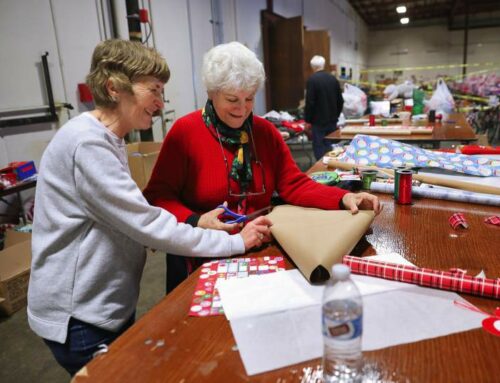North Bay Business Journal
BY GLORIA DUNN VIOLIN
The recent firestorm in Sonoma, Napa, Mendocino and Lake counties has pushed our delicate human systems to the brink. It has taken every ounce of feeling safe and secure away. It has stolen our homes, our businesses, and some dear to us. It has turned our world upside down expecting us to cope and move forward. This is a huge ask.
How do we deal with devastation and loss? What can we expect after going through the most difficult time in our lives?
We can begin by understanding that to cope we need to foster compassion, patience and forgiveness for ourselves and others, and help each other heal. The disaster has challenged our emotional responses. We need to accept that this major change will cause most of us to go through normal stages of grief, and be aware of how their impact on us may affect others.
James Lee Witt, former FEMA director who supported the start of Rebuild North Bay, told me: “With all of the disasters we’ve responded to over the years, we see people go through different stages. They begin with absolute shock, because everything they worked for is gone. As it moves along, they become frustrated by how slow the system works, and how long it takes to get their lives back. As the months go on, they get really angry.
“One of the essential things local government and services need to do, is to keep information flowing. People need to know what is happening next so they can understand how it affects them.
“It is also extremely important to set up counseling services for people who have serious problems dealing with this disruption in their lives. Community health, religious and other supportive organizations need to be available immediately.”
Many local businesses answered the initial needs of their overwhelmed employees by making sure services, and the necessities of food, shelter, and clothing were immediately available. Also, our counties have moved swiftly to help us go through this difficult time while focused on rebuilding our communities stronger, safer, and more sustainable.
Still, it will take time to personally accept that this disaster is now part of our history. By being aware of the five stages of grief, developed by Elisabeth Kübler-Ross, psychiatrist, journalist and author, we can take solace in that our responses to this major disruption are normal, and assuage the guilt that comes with feeling out of control. Although we are each unique and there is no typical response to loss, these are some guidelines we can use. The stages are:
Denial: “This can’t have happened to me”
During this first stage it is difficult to believe or comprehend that this disaster has occurred. We feel blindsided by events that were out of our control. It is also difficult to absorb this reality as a new normal.
Anger: “Why is this happening? Who is to blame?”
Once we recognize that we cannot deny our reality, we become frustrated. We might inappropriately respond with anger and unintentionally hurt others. If we pre-think and pre-plan how we will react, we will know how to constructively discharge and alleviate the anger that fills us.
Bargaining: “Make this not happen, and in return, I will give you anything you want.”
The third stage involves the hope that we can avoid the outcomes of our circumstances. Unfortunately, in the case of a disaster, there is no compromise. There is only the decision to move forward as well as possible, while honoring how we feel.
Depression: “I’m too sad to do anything.” “What’s the point?”
During the fourth stage, individuals despair at the impact on their lives. Our mental decisions will take us down a good or destructive path. The brain is very pliable, and does what it is told. At this point we need to dig our way out of depression. If we tell ourselves all will be well, it will become more obvious as we work toward renewal and a positive future.
Acceptance: “Everything is going to be okay. I can see the light at the end of the tunnel.”
As we come to peace with our losses, and see the possibilities of a positive new future, we can begin to accept what happened. We can also feel hope, which is a powerful elixir. As we learn how to get our lives back to normal, we need to do so with a modicum of patience. Slowly, we will find resilience, gratitude, comfort, and even joy.
In the future, this difficult time will become one of the stories we tell others about survival, perseverance, hope and love. We will talk about those near us and strangers who came to our aid. We will have rebuilt our lives, homes, businesses and community. We will have gratitude that our renewal has been achieved with new energy, sustainability, and appreciation for the people who have stepped up and brought us to a new day.
We will have survived adversity and rebuilt our lives and the North Bay.
The New Retirement: A Paradigm Shift (NorthBayBusinessJournal.com/NewRetirement) is a recurring column by Gloria Dunn-Violin (415-259-7090, havingalifenow.com, [email protected]). She is a professional speaker, seminar leader, and business consultant through her company, HAVING A LIFE After Making a Living. She has over 25 years experience in organizational behavior and development as a trainer, facilitator, consultant and coach. She also advises financial, insurance, and other businesses on how to provide their clients and employees with meaningful advice about aging and retirement.







